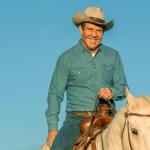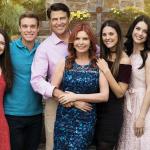Review of UP, Directed by Pete Doctor
Before Toy Story 3 opened floodgates of slightly guilty tears (but after Toy Story 2 triggered … other, even guiltier tears), the geniuses at Pixar figured out another way to bring forth the waterworks [serious profanity warning for that article, folks]—this time in the opening montage of UP. In the first ten minutes of the film, a young Carl Fredrickson meets, marries, and builds a life with the spirited Ellie. By the end of the montage, decades have passed, Ellie has succumbed to illness, and a much-older Carl is left alone in the house made precious by the years spent in it with the woman he loved. Carl—Mr. Fredrickson to whippersnappers like you and me—is something of a grump now, clinging with almost irrational ferocity to two things: the house he renovated and shared with his beloved Ellie and their unfulfilled dream of seeing Paradise Falls in the wilds of Venezuela. When urban development and an unfortunate bout of bad temper threaten to separate Mr. Fredrickson irrevocably from both, he takes matters into his own hands, ties about a bajillion helium balloons to his house, and flies that sucker off into the sunset … and thence to South America and Paradise Falls. Of course, his plans are complicated—as so many voyages are—by the discovery of a stowaway: young Russell, the Wilderness Scout who’s been hanging around the Fredrickson place, determined to earn his ‘assisting the elderly’ badge and thereby attain the coveted rank of ‘Senior Wilderness Scout’.
Russell and Mr. Fredrickson have a series of increasingly fantastic adventures—of which ‘flying in a house suspended by helium balloons’ is actually the most plausible. There are storms to weather, talking dogs to befriend, a mysterious and heretofore unknown bird to rescue, and a crazed explorer to thwart. The movie goes downhill a bit with each increasingly insane situation, but despite some just-plain-silly business with canine fighter pilots, it’s consistently enjoyable, largely because of the grouchy charm of Ed Asner (as Mr. Fredrickson) and the slightly-infuriating-yet-irresistible likability of Jordan Nagai (as Russell). Dug the Talking Dog also has a few amusing moments (‘Squirrel!’ ‘But he’s a talking dog!’), though he’s best in small doses. 
Along the way, crotchety Mr. Fredrickson learns to appreciate and even care for the rather annoyingly enthusiastic (and terribly lonely) Russell, for whom Wilderness Scout success serves as a means of earning the affection and approval of his estranged and disinterested father. Russell, in turn, learns a bit more about his cantankerous companion (though it’s not clear if he ever sees what we the audience have seen—that is, the full extent of Mr. Fredrickson’s love for Ellie, his grief and loneliness at her loss, and his disappointment at his own failure to help her realize their lifelong dream). This tale of mutual appreciation, of other knowing—and even loving—other despite the differences that separate them, is nothing short of beautiful.
There is much here for the Christian viewer—the story is rife with truths that resonate with a Biblical worldview. We live in a society of peers, where like wills to like. Those outside our generation are so often dismissed without a passing thought. Our parents don’t understand us, and we don’t understand our kids. But in today’s world, so obsessed with youth, beauty, and health, with what is flashy and new and current and trendy, perhaps no group is so easily dismissed as the elderly. They’re always talking about some war or other. Or the Depression. They tell the same stories over and over. And they smell funny. Like Mr. Fredrickson, they are oddly attached to seemingly worthless trinkets and dusty artifacts that have no attraction to our modern eyes. We look at the Mr. Fredricksons in our lives, and are mystified by their insistence on staying in a run-down house, even when presented with the opportunity to realize a tidy profit and buy a newer, better place. We dismiss their obsession with the placement, treatment, and care of the mementos that clutter their houses and lives. We judge them for being unwilling to let go of the past and ‘just move on.’
What UP offers is a glimpse behind the curtain—a chance to see and understand the person behind these mystifying idiosyncrasies. Every trinket in Mr. Fredrickson’s house is precious to him, not because of any inherent value, but because of its connection to Ellie and the years they spent together. He is, in a very real way, trying to hold on to what he has lost. He could not hold to Ellie, could not keep her from dying, but he can hold on to her house and her stuff, protecting them—and by extension, Ellie herself—from the ravages of time and the nefarious intentions of vaguely sinister urban developers. And when he sits in his favorite chair, next to the now-empty chair that Ellie occupied for so many nights, it is almost like she is here again. He even talks to the house as if it were Ellie. His rudeness to others and his disinterest in the world around him is rooted in his love for her and his desperation to hold tight to what is left of the woman he loved. He is not just an ‘old man’ cardboard cut-out with thick glasses, wrinkles, and grey hair. He is a person, full of memories and emotions, hopes and disappointments, love and grief.
However, UP does not deify Mr. Fredrickson’s love for his wife and his obsession with the past. We are encouraged to empathize with a sad old man, and that is a wonderful thing. But Mr. Fredrickson is not left to wallow in his memories of the life that could have been. In the person of Russell, Mr. Fredrickson finds himself up against a living obstacle that continually interferes with his quest. He wants nothing more than to plant his house at Paradise Falls and stay there peacefully for whatever is left of his life. But Russell keeps getting in the way—unintentionally tagging along, adopting troublesome (and talkative) dogs, getting lost, and wandering off on his own quest to free an endangered giant bird.
Over the course of the film, Mr. Fredrickson learns that people matter more than knick-knacks, houses, or even memories; that love sometimes means letting go of your fondest dreams; and that sometimes the best way to honor the death of a loved one in by caring for and loving others. This realization is contrasted with the obsession of a crazed explorer, so immersed in the past, so consumed by a quest, that he is willing to do anything to achieve his purpose … even take another human life.
In the end, Mr. Fredrickson lets go of his house and his dream, and in the process he learns that his life with Ellie, though not the exact adventure they’d both dreamed of, was precious and beautiful in its own way. Mr. Fredrickson never got to take Ellie to Paradise Falls—life got in the way. But they shared an even greater adventure: a life together, caring faithfully for one another through ups and downs. And now, in Russell, Mr. Fredrickson has been given another opportunity to love and care for someone. There are still adventures to be had. His life is not over. He is not just a past; he has a future. And he has an obligation to spend that future not just wistfully remembering his past with Ellie, but looking for ways to serve and bless those around him in the present.
UP thus encourages us to honor the older generations—to respect them and listen to them and understand them, rather than ignoring or dismissing them. This is certainly an admonition that is supported by Scripture (Lev. 19:32; Prov. 16:31). The way we treat our elders is supposed to be fundamentally different from the way we treat younger folks—one is to be respected and addressed as a father, the other like a sibling (I Tim. 5:1). Both are loved; both are respected. But there is a measure of honor and respect that is uniquely owed to those who’ve lived longer than we have (Ex. 20:12; Eph. 6:1-2). Failure to show this honor to our elders is decried as a very bad thing (Is. 3:4-5)—and indeed, there is something revolting about the mistreatment of the elderly.
However, Scripture does not just admonish the young to respect their elders; there is a corresponding obligation on the part of the older generations to invest in and teach the young. If the young are to heed the instruction of the old, the old must instruct (Prov. 13:1; Prov. 15:5). Their teaching is to be grounded in wisdom, for the benefit of those who hear them (Prov. 1:8-9; Prov. 4). They must teach, and they must do so in a manner designed not to aggravate those under their instruction, but to encourage them in love and truth (Eph. 4:15; Eph. 6:4). And no truth is of greater importance than the truth of the gospel—that we are all of us estranged by our sin from the holy and righteous God who made us, that we have rebelled against Him and have thereby earned His eternal wrath. This sad truth is the necessary precursor to an infinitely gladder truth—that when we were dead in our sins, He sent His only Son to live as one of us, wholly man yet wholly God, to live the obedient life we should have lived, to die the death our sins deserved, and to be raised thereafter to glory with God. In Him, we can be reconciled to God through faith—our sins can be forgiven, we can be given a new heart of love to God so that we can gratefully and humbly live in a way that reflects the glorious gospel we believe. This truth is the most precious inheritance that older Christians can pass on to younger generations.
The lessons of UP are of particular moment in our modern culture. To the young—the self-obsessed younger generations who are absolutely convinced that we in our wisdom have finally figured out the answers to the world’s problems, and who dismiss the elderly as irrelevant and inconvenient obstacles in the way of all the wonderful changes we mean to effect—to us, UP encourages us to value and respect our elders, to benefit from their wisdom, to cultivate and appreciate their love and affection, and to empathize with the sorrows the joys they’ve experienced (even when those experiences predate our own by several decades). To the elderly, UP offers a challenge not to let love of (or disappointment in) the past prevent us from investing in the lives of others today so that they may live lives that honor God tomorrow and for years to come. And to childless and widowed men (and women) in the church, UP serves as a reminder that we live in a world full of fatherless children. Some may have been physically orphaned or abandoned, but many who have fathers in the nominal sense may be lacking a fully present father-figure to love them, to teach them the gospel truths they so desperately need—someone to model for them what it means to be a godly man today (Titus 2:2). UP and the Bible are in agreement on these matters: When the young respect and care for their elders and the elderly instruct the young in the Lord and invest in them, everybody wins (Prov. 17:6).
So if you haven’t already seen UP, see it. If you have kids, watch it with them; and if you don’t have kids, watch it anyway. There’s plenty here to challenge Christians of all ages.
_______________________________________________________________
Alexis Neal regularly reviews young adult literature at www.childrensbooksandreviews.com and everything else at quantum-meruit.blogspot.com.












